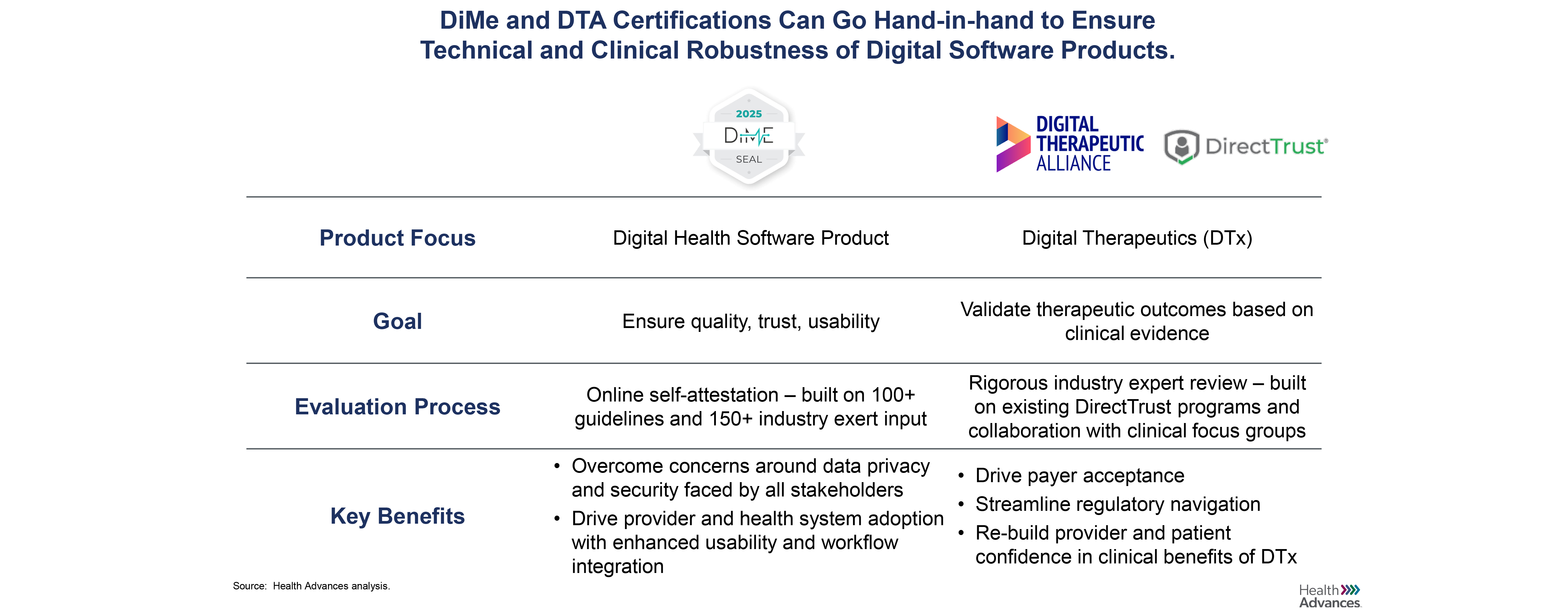
Blog | 1/29/2025
Navigating the Digital Health Maze: A Call for Industry Standards
By Jeff Abraham, Partner
The development of digital health products and adoption of digital measures have faced numerous obstacles in the last few years including complex regulatory hurdles, privacy concerns surrounding sensitive health data, and a lack of standardized evidence-based practices. Additionally, the competitive landscape and evolving reimbursement models complicate market access, while low digital health literacy among certain populations can hinder user engagement. And yet despite these challenges, there are >350,000 digital health software products out there and IQVIA estimates as many as 90k new health apps are created each year, leaving customers awash in options from companies touting well-meaning, personalized, clinically impactful tools that directly improve their workflow and quality of life.
To address these challenges effectively, the digital health industry requires robust standards that ensure safety, efficacy, and interoperability. Established industry standards can foster trust among stakeholders and enhance patient outcomes. In this context, the Digital Medicine Society (DiMe) and the Digital Therapeutics Alliance (DTA) have introduced initiatives such as the DiMe Seal and DTA Accreditation in 2024. These initiatives aim to create a reliable framework for evaluating digital health products, ensuring they meet high-quality standards that stakeholders can trust.
The DiMe Seal serves as a powerful symbol of quality for digital health products, encompassing over 100 guidelines related to privacy, security, usability, and evidence generation. It allows developers to self-attest their compliance through an online platform reviewed by industry experts. In contrast, the DTA Accreditation focuses specifically on digital therapeutics (DTx), requiring rigorous clinical evidence to validate therapeutic claims. Together, these certifications enhance trust in digital health products by addressing unique market needs and fostering greater consumer confidence while supporting developers in navigating commercialization challenges.
Authors
- Jeffrey Abraham, Partner, Co-leads Health Advances’ Health IT and Digital Health practice

